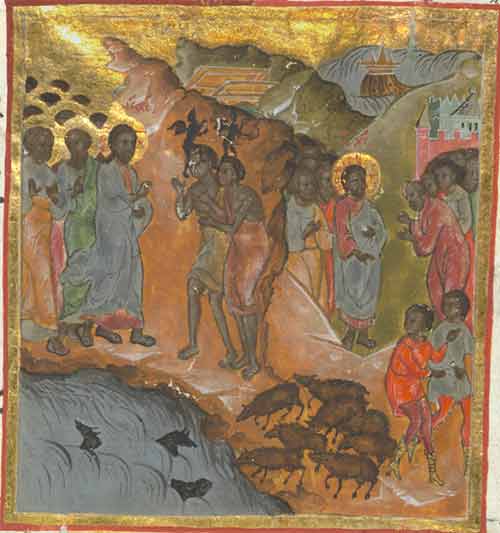
Let us pray (in silence) [that we praise, reverence, and serve God]
pause
Lord,
may we always love and revere your Holy Name,
for you never fail to help and guide those you establish firmly in your love;
through Jesus Christ, our Saviour
who is alive with you,
in the unity of the Holy Spirit,
one God, now and for ever.
Amen.
Click on this link to find my history, commentary, and reflection on this collect: Ordinary 12. It encourages reflection on God’s Name/Nature, God as our pilot, and points to reflections on this collect centuries ago. Or see below.
Resources beyond this site:
Textweek
Girardian Reflection on the Lectionary
Resourcing Preaching Down Under
Some churches will, this coming Sunday, celebrate Corpus Christi, moving it from Thursday 16 June.
Some churches will, this coming Sunday, celebrate Te Pouhere Sunday, in the Anglican Church in Aotearoa, New Zealand and Polynesia, General Synod Te Hinota Whanui designated this Sunday to celebrate our life as a three Tikanga (cultural streams) Church. My response to this latter celebration is to encourage the use of the agreed Revised Common Lectionary – I am no lover of “themed” Sundays – and that one find Three Tikanga perspectives within those texts and also make the Sunday service a genuine three-tikanga celebration.
If you appreciated this post, do remember to like the liturgy facebook page, follow on twitter, use the RSS feed, and sign up for a not-very-often email, …
Commentary on the Collect
This is my rendering of the Latin Collect of the Sarum Missal for the Second Sunday after Trinity Sunday. The Gelasian Sacramentary has it for the Sunday after Ascension Day (#586); Gregorian (#1132) Second Sunday after Pentecost:
SANCTI nominis tui, Domine, timorem pariter et amorem fac nos habere perpetuum: quia numquam tua gubernatione destituis quos in soliditate tuae dilectionis instituis. Per Dominum. Amen.
Cranmer in 1549 has this as:
LORD, make us to have a perpetuall feare and love of thy holy name: for thou never faillest to helpe and governe them whom thou doest bryng up in thy stedfast love. Graunt this, &c.
This was revised in BCP 1662 to:
O LORD, who never failest to help and govern them who thou dost bring up in thy stedfast fear and love; Keep us, we beseech thee, under the protection of thy good providence, and make us to have a perpetual fear and love of thy holy Name; through Jesus Christ our Lord. Amen.
Massey Hamilton Shepherd, in The Oxford American Prayer Book Commentary, wrote:
Cranmer’s version does not catch the illuminating metaphor of the original, which likens God’s help and governance to that of a pilot or helmsman. We reverence and fear the pilot because he alone can bring us safely to our destination; we love him because he never abandons that care and concern for us from the moment we have placed ourselves in his hands.
The original balances timor/amor (fear/love) and instituo/destituo (establish/abandon).
gubernatio – God is, our pilot, our helmsman
There is benefit in reflecting on reverence, fear, love, providence, and the concept of God’s “name” being God’s nature, including God’s self-revelation.
In the sermon on this prayer by Baldwin of Ford (Archbishop of Canterbury died 1190) quoted Listen to the Word page 64:
fear gathers what is scattered, unites what is dispersed, casts out and excludes what is evil, nurtures good and guards what is nurtured.
As with the 1973 ICEL translation, the NZ Prayer Book version of this collect is weakened (page 628):
Holy God, holy and strong, holy and immortal,
keep us under the protection of your good providence,
and help us continually
to revere and love your holy name;
through Jesus Christ our Lord.
Although contemporary versions of traditional collects may benefit from an address other than “Almighty God”, or “Lord”, in this case the NZ address “Holy God, holy and strong, holy and immortal,” takes one aback. The Trisagion (“Holy God, holy and strong, holy and immortal, have mercy on us”) is used at the start of Eastern Christian eucharists, as well as traditionally in the Western Good Friday liturgy. It has now been incorporated into the start of many Anglican liturgical rites for the eucharist. Although some of its images fit with the collect, in my opinion the same could have been achieved if the NZ revisers had simply made the address something like, “Strong and holy God,…”
The Church of England appears not to use this collect. The Episcopal Church (USA) uses it for Proper 7 (the Sunday closest to June 22, ie. where RC uses it, the twelfth Sunday in Ordinary Time). The American BCP restores it closer to the Latin and Cranmer’s (1549) understanding.
BCP (TEC):
O Lord, make us have perpetual love and reverence for your holy Name, for you never fail to help and govern those whom you have set upon the sure foundation of your loving-kindness; through Jesus Christ our Lord, who lives and reigns with you and the Holy Spirit, one God, for ever and ever. Amen.
ICEL (1973):
Father,
guide and protector of your people,
grant us an unfailing respect for your name,
and keep us always in your love.
In the failed 1998 English Missal translation:
Lord God,
teach us to hold your holy name
both in awe and in lasting affection,
for you never fail to help and govern
those whom you establish in your steadfast love.
We ask this through our Lord Jesus Christ, your Son,
who lives and reigns with you in the unity of the Holy Spirit, God for ever and ever.
ICEL (2011):
Grant, O Lord, that we may always revere and love your holy name,
for you never deprive of your guidance
those you set firm on the foundation of your love.
Through our Lord Jesus Christ, your Son,
who lives and reigns with you in the unity of the Holy Spirit,
one God, for ever and ever.


